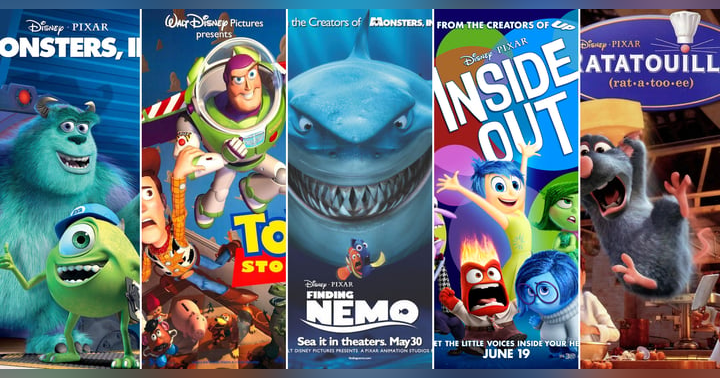From B-Movies to Beloved: The Unexpected Appeal of 80's Martial Arts Films

The 1980s marked a golden era for martial arts cinema, when ninjas, karate champions, and rogue fighters dominated the silver screen. These films, often produced on shoestring budgets, combined high-flying action with campy storytelling, creating a genre that became beloved for its unique charm. As a lifelong fan and a black belt in martial arts movies on the Born to Watch podcast, Gow, invites you to explore the lasting legacy of 1980s martial arts films. We'll dive into iconic titles like "Bloodsport" and "The Octagon," dissect their so-bad-they're-good qualities, and examine their enduring influence on contemporary filmmakers and how these movies went from B movies to beloved.
The Rise of the 80's Martial Arts Phenomenon
The 1980s was a decade characterised by its eclectic mix of cultural phenomena, and martial arts films were no exception. The genre surged in popularity, thanks partly to the success of Bruce Lee's earlier films and the rising interest in Eastern martial arts in the West. This era saw the birth of numerous low-budget martial arts films that, despite—or perhaps because of—their flaws, captured the imaginations of audiences worldwide.
Films like "Revenge of the Ninja" (1983) epitomised this trend. Directed by Sam Firstenberg and starring Sho Kosugi, this movie combined intense fight sequences with a plot so outrageous it became endearing. The story follows Cho, a ninja who relocates to America only to face betrayal and corruption. The film's unintentional humour and earnest portrayal of martial arts made it an instant cult classic.
Iconic Films and Their Enduring Charm
One of the standout features of 80's martial arts films is their ability to entertain despite or because of their many quirks. "Bloodsport" (1988), starring Jean-Claude Van Damme, is a prime example. The film tells the supposedly true story of Frank Dux, a martial artist who competes in a secret underground tournament. While the veracity of Dux's story has been widely disputed, "Bloodsport" remains beloved for its intense fight scenes, Van Damme's charisma, and a thrilling and delightfully absurd narrative.
Similarly, "The Octagon" (1980), starring Chuck Norris, brought a unique blend of martial arts action and espionage to the screen. Norris plays Scott James, a martial artist who must stop a terrorist organisation led by his half-brother. The film's plot twists, combined with Norris's stoic performance and impressive fight choreography, have made it a favourite among fans of the genre.
Another cult classic is "American Ninja" (1985), directed by Sam Firstenberg and starring Michael Dudikoff. The film follows Joe Armstrong, an American soldier with mysterious ninja skills, as he battles an evil syndicate. Despite its formulaic plot and wooden acting, "American Ninja" captivated audiences with its over-the-top action sequences and Dudikoff's magnetic screen presence.
The "So-Bad-They're-Good" Appeal
What makes these films enduringly popular is their "so-bad-they're-good" appeal. The cheesy dialogue, implausible plots, and often questionable acting contribute to a viewing experience as entertaining as it is laughable. For instance, "Gymkata" (1985), which stars Olympic gymnast Kurt Thomas, combines gymnastics with martial arts in a ridiculous and mesmerising way. The film's outlandish premise and unintentional comedy have secured it a place in the annals of cult cinema.
The same can be said for "Ninja III: The Domination" (1984), a bizarre blend of martial arts and supernatural horror. Starring Lucinda Dickey as an aerobics instructor possessed by the spirit of a ninja, the film's eccentric plot and campy execution have made it a beloved oddity among fans.
Influences on Contemporary Filmmakers
The influence of 80's martial arts films can be seen in contemporary cinema. Modern filmmakers often pay homage to these cult classics, drawing inspiration from their action choreography, stylistic elements, and unapologetic embrace of camp. Quentin Tarantino, a known aficionado of genre films, has cited 80's martial arts movies as influences on his work. His "Kill Bill" series, for instance, features numerous nods to the over-the-top action and stylistic flair of these earlier films.
Additionally, the resurgence of martial arts in mainstream cinema, seen in films like "John Wick" and "The Raid," can trace its roots back to the groundwork laid by 80's martial arts films. These contemporary films, while often more polished and sophisticated, share the same dedication to intense, well-choreographed fight scenes that were the hallmark of their predecessors.
The Cultural Impact and Nostalgia Factor
For many fans, the appeal of 80's martial arts films lies not just in their action or camp, but in the nostalgia they evoke. These films were a staple of video rental stores and late-night television, forming a crucial part of the cultural landscape of the 1980s. They introduced Western audiences to Eastern martial arts, fostering an appreciation for the discipline and artistry involved.
Moreover, these films provided a form of escapism, transporting viewers to a world where good and evil were clearly defined, and heroes triumphed against insurmountable odds. The simplicity of their narratives and the purity of their action sequences offer a comforting retreat from the complexities of modern life.
Conclusion: The Enduring Legacy of 80's Martial Arts Films
The 1980s gave birth to a unique genre of martial arts films that, despite their often dubious quality, have become beloved masterpieces in the eyes of many. Movies like "Bloodsport," "The Octagon," "Revenge of the Ninja," and "American Ninja" continue to be celebrated for their so-bad-they're-good appeal, thrilling action, and nostalgic charm. These films laid the foundation for the action-packed, martial arts-infused cinema we enjoy today, influencing generations of filmmakers and fans alike.
As a black belt in martial arts movies, I can attest to the enduring appeal of these films. They represent a time when creativity flourished, and filmmakers weren't afraid to take risks and embrace the absurd. So, the next time you watch a modern martial arts blockbuster, remember to nod to the campy, action-packed gems of the 1980s that paved the way.














